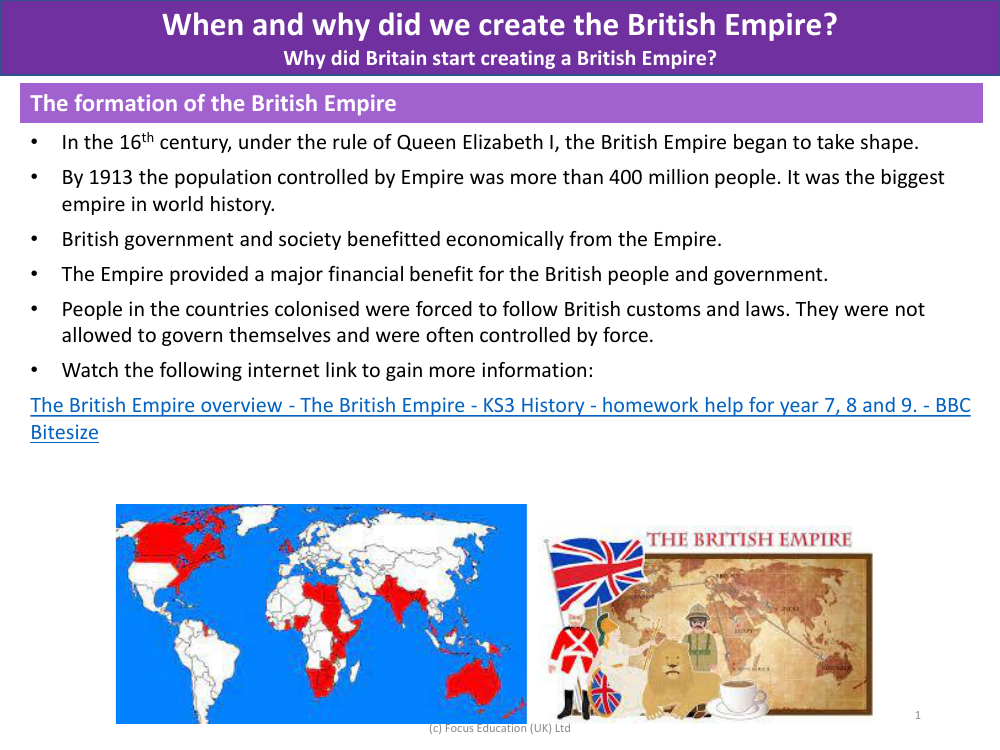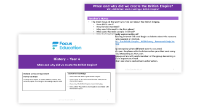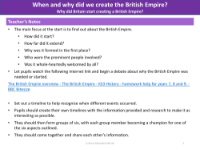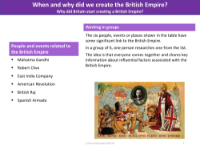The British Empire: Key events - Info pack

History Resource Description
The British Empire, a dominant global power for centuries, began its formation during the 16th century under Queen Elizabeth I. This expansive empire, which at its zenith in 1913 encompassed over 400 million people, became the largest empire in world history. The economic benefits were substantial for British society and its government, with significant financial gains derived from the Empire's reach. However, the impact on the colonised countries was profound and often detrimental; local populations were forced to adopt British customs and laws, and self-governance was denied, with control frequently maintained through force.
Key events in the establishment and expansion of the British Empire include the defeat of the Spanish Armada in 1588, which asserted England's naval superiority and paved the way for global trade and territorial competition. The following years saw a series of colonies and settlements established, from Canada to Honduras, and significant moments such as the East India Company's establishment of trading posts in India. The Empire's influence grew with the acquisition of territories through wars, treaties, and strategic exchanges. Notable points in the timeline include the Battle of Plassey in 1757, the abolition of the slave trade within the Empire in 1807, the formation of the Union of South Africa in 1910, and the eventual decolonisation movements, leading to the independence of India in 1947 and the return of Hong Kong to China in 1997. Creating a timeline of these events offers a visual representation of the Empire's history and its far-reaching effects on the world.



